Jakarta, MINA – The Gadjah Mada University Alumni Association (KAGAMA) held the KAGAMA Leader Forum (KLF) to discuss the impact of the “Trump Effect” on Indonesia amid ongoing global trade wars.
The event, a collaboration between KAGAMA’s central board and Indonesia’s public broadcaster RRI, took place on Wednesday in Jakarta.
With the theme “The Trump Effect: Bagaimana Indonesia Mendulang Peluang di Tengah Perang Dagang (How Indonesia Can Seize Opportunities Amid Trade Wars),” the forum featured prominent national figures and alumni of Gadjah Mada University.
Senior economist and former Governor of Bank Indonesia, Prof. Dr. Soedrajat, emphasized that global economic powers are experiencing strong growth due to their dominance in international trade.
Also Read: 215 Boats Registered for Riau’s Traditional Boat Race, Nearly Rp500 Million in Prizes
“Nations with strong economic foundations are enjoying accelerated growth by maintaining control over global markets,” he stated.
Djauhari Oratmangun, Indonesia’s Ambassador to China and Mongolia, pointed out that the country’s low export volume increases its vulnerability to import pressures. He also highlighted leadership styles, such as that of the U.S. President Donald Trump has shaped international trade behavior.
“China’s leaders, for instance, are consistently addressing the core issues in their economic competition,” he said.
He emphasized the need for political and economic stability, particularly in managing relations with the U.S., noting the trade imbalance between the two countries.
Also Read: Indonesians in Lebanon Celebrates 80th Independence Day with Festive Celebration at Embassy
“We must build a strong collaborative ecosystem between government and business actors to foster strategic cooperation with major powers like China and the United States,” he added. He also warned that current geopolitical instability requires Indonesia to adopt more adaptive economic policies.
Deputy Minister of Finance, Prof. Dr. Anggito Abimanyu, said the “Trump Effect” has impacted global cooperation and national economic confidence.
“We need to boost investment and strengthen our downstream industries to increase national revenue,” he said. He also called for a comprehensive review of the Domestic Component Level (TKDN) to support sustainable national production.
From the business sector, Toyota Indonesia’s President Director Nandi Julyanto emphasized the importance of reinforcing domestic industry while expanding both local and international demand.
Also Read: Israel’s New Settlement Plan Threatens to Displace 7,000 Palestinians in West Bank
“Exports are crucial during a global trade war. We should look for opportunities in every crisis and position Indonesia as a key part of the global supply chain,” he stated, urging more domestic production to meet export demands.
Meanwhile, Masrizal A. Syarief, President Director of Graha Ismaya, discussed the potential of Indonesia’s medical equipment industry.
“Many Indonesians are still unfamiliar with the pharmaceutical sector. We need stronger market guarantees and support from all stakeholders,” he said, emphasizing the importance of public-private collaboration in building a sustainable domestic health industry.
The forum concluded with a consensus that Indonesia must enhance synergy among stakeholders, scale up national production, and pursue strategic partnerships with global economic powers to stay resilient in an increasingly competitive world. []
Also Read: Indonesian Forces Airdrop Humanitarian Aid Over Gaza on Independence Day
Mi’raj News Agency (MINA)











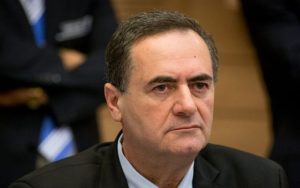

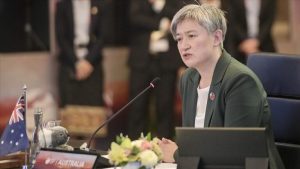

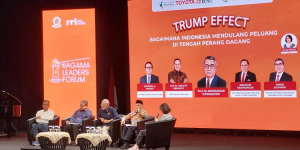



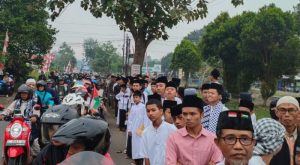


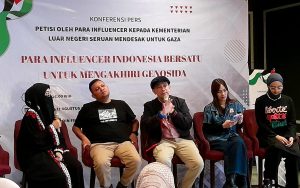








 Mina Indonesia
Mina Indonesia Mina Arabic
Mina Arabic